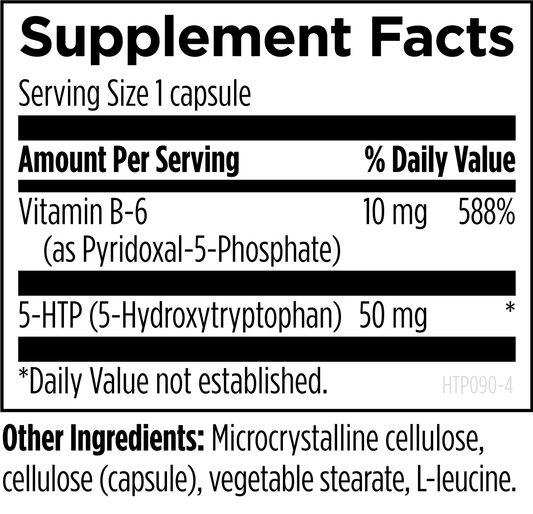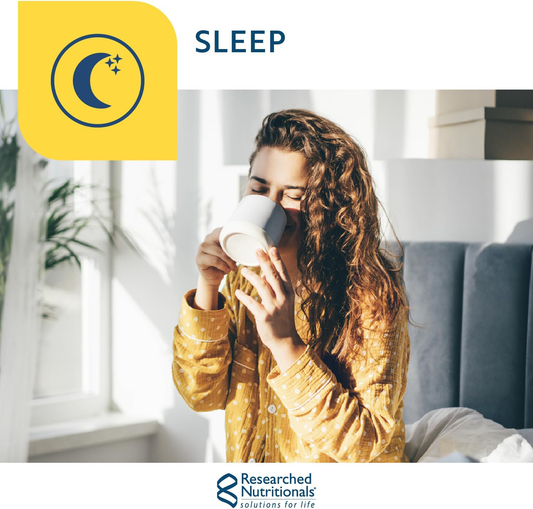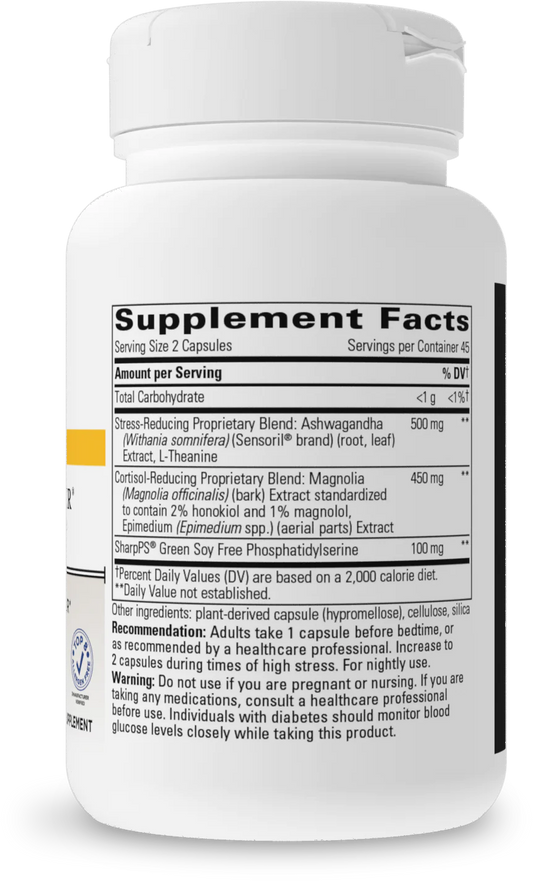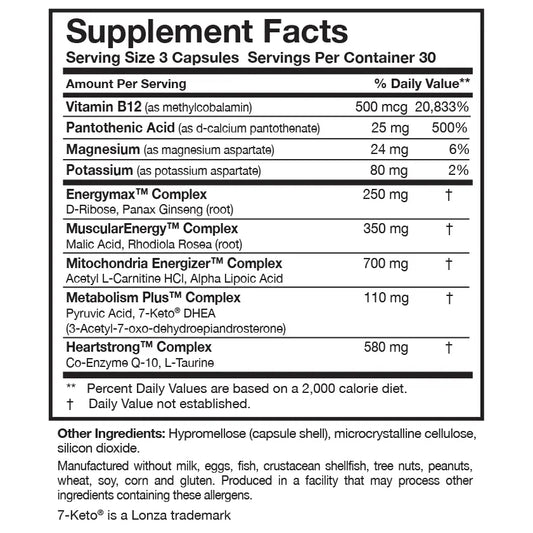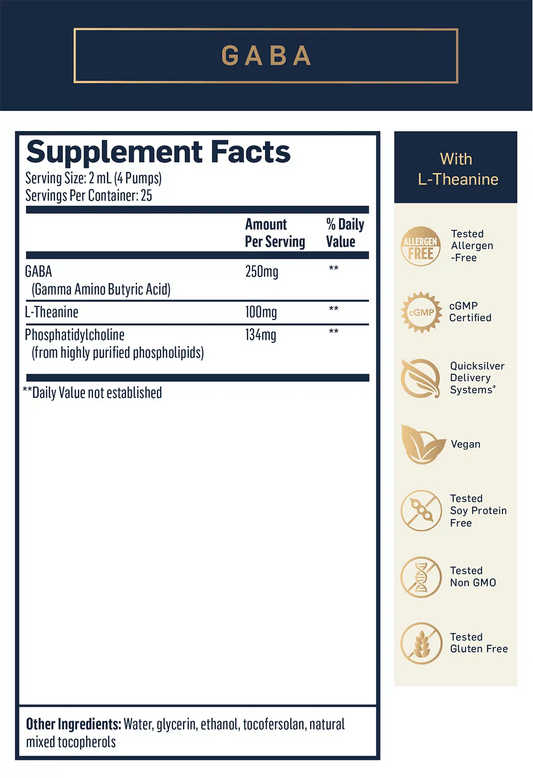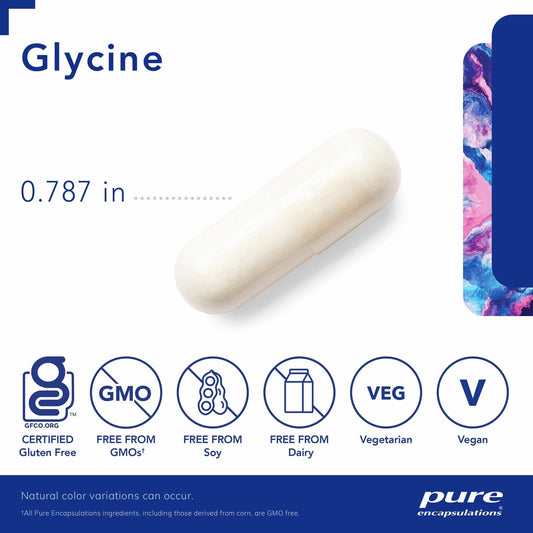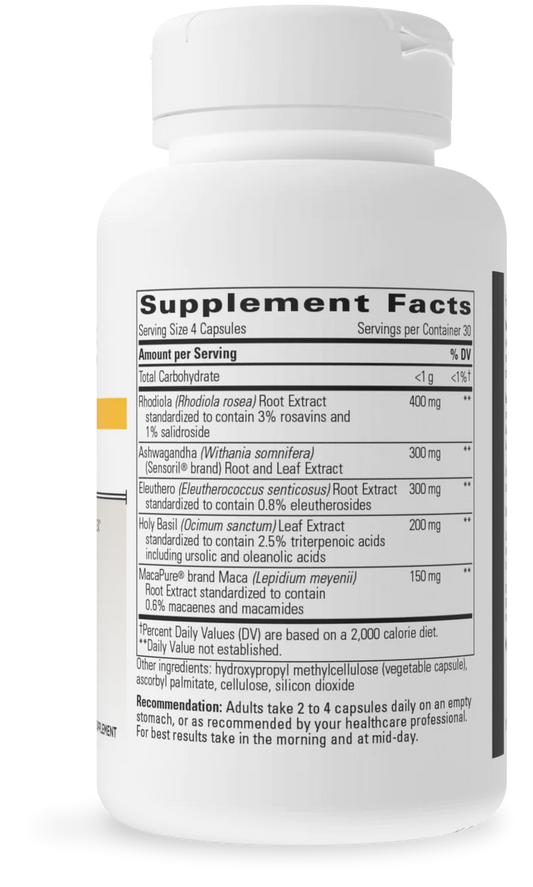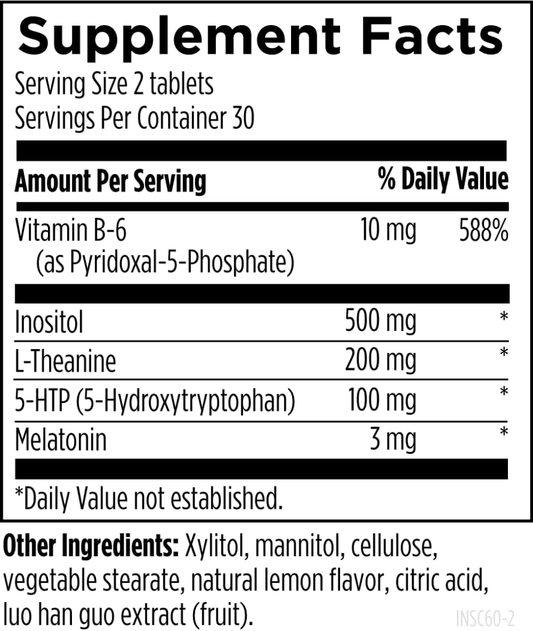Unlocking the Secret to Longevity: The Transformative Power of Sleep.

Imagine if you could slow down aging, boost your energy, and sharpen your brain—all while you just lie there. Sounds like a fantasy, right? Well, it's not—it's just a few of the life-changing benefits you get from good quality sleep.
Of course, you've heard some version of “sleep is good for you; get more sleep” before. And if you're like a lot of us, you may still not take it seriously.
So let me frame this in a way that might give you more urgency. By not prioritizing your sleep, you're accelerating the rate you age... sucking the energy out of every aspect of your life... and quite literally destroying your brain.
Shortchanging yourself on sleep is like putting regular gas in a Formula One car—it's a sure way to put yourself on a fast track to a breakdown. And in this article, I'll show you why.
Even better: I'll tell you what you can start doing today to improve your shuteye tonight.
The Perils of Poor Sleep
No matter what hustle culture says, skipping sleep isn't the secret to getting ahead. In fact, research shows it's a pretty awful idea.
Lack of sleep not only clouds your cognition, memory, and decision-making the next morning, it wreaks havoc on your body's internal systems and processes.
Did you know that people who skimp on sleep tend to eat hundreds more calories a day than people who get at least 7-8 hours?
One reason: A poor night's rest can amplify your hunger hormones, driving you to overeat. Hormones like ghrelin (the “hunger hormone”) and leptin (the “satiety hormone”), prompt you to reach for sugary snacks, setting the stage for insulin resistance (chronic insulin resistance can lead to diabetes).
What's more, constantly depriving yourself of sleep ramps up inflammation in your body, exacerbating just about every health issue imaginable and contributing to the development of insulin resistance, diabetes, and cancer.
How Sleep Repairs, Recharges, and Rejuvenates
A good night's sleep acts as a tune-up for your brain, decluttering, recharging, and sorting memories. Skipping sleep disrupts this process, contributing to the buildup of brain toxins linked to Alzheimer's disease.
But why?
While we've long known that sleep problems are bad for us, understanding why has been a complicated journey. Scientists are just beginning to untangle the complex biochemical processes underlying the harmful effects of sleep deprivation on our health.
The process of autophagy, your body's cellular cleanup crew, uses sleep as an opportunity to get rid of broken-down cells and debris.
Disrupted sleep disrupts autophagy, leading to a buildup of toxic waste that can contribute to serious health issues like cancer and heart disease, while also accelerating aging.
Learn to Sync Your Internal Clock
Your body has built-in “clock” molecules that help sync your circadian rhythms to the rhythms of nature. The master clock resides in the part of your brain called the hypothalamus and uses light to reset itself every day.
This master clock is important because it “talks” to other clock systems throughout your body. Your endocrine system—which is responsible for the production of many hormones—is tied to this predictable light-dark cycling.
This means that exposing yourself to morning light for just 10 to 15 minutes every day, can dramatically improve your alertness during the day and help you wind down at night.
At dusk, it's a good idea to dim screens and switch on some red light to cue your body's bedtime, keeping melatonin—a key hormone for sleep—on your good side.
It's not just the light from your phone that makes bedtime news-reading a bad idea.
The neurochemicals associated with doom scrolling—dopamine, adrenaline, cortisol—are really good at keeping you alert, instead of letting you give in to the soothing sleep hormones.
Reading that next tweet or work email before bed is akin to stirring a restless dragon, triggering a cascade of energizing chemicals that reduce your chance at peaceful slumber by the minute.
Your 30-Day Sleep Better Challenge
What should you be doing to improve your sleep? You probably won't be surprised at what I'm about to share with you. You might even think my advice is “too boring” to work.
But I promise: My patients who have adopted these practices have seen tremendous improvements in their quality of sleep. Many have said it's been “life changing.”
And here's the thing: Most of these folks weren't believers at first, but they gave it their best shot anyway.
So here's my challenge: Implement this advice for the next 30 days and judge for yourself. Because you can just dream about being healthier and feeling more alive, or you can take action and do something about it.
Lock Down a Sleep Schedule
Wake up and go to bed at the same time every day. This is the world's simplest advice, but it also may be the most impactful habit you can adopt. It'll reset your internal clock and get your circadian rhythm... in rhythm.
Here's what to do: Figure out the time you need to get up on your earliest morning of the week. Then work backwards for at least 7-8 hours. That's your bedtime. Stick to this bedtime and wake-up time as consistently as you possibly can—even on weekends.
Sleep in a Cool, Dark Room
Make your bedroom a sleep sanctuary. Think dark, quiet, and cool—aim for 65 to 67 degrees Fahrenheit. If your room isn't pitch black, consider getting a sleep mask. (I love Manta sleep masks.)
And ideally, use your bed for sleep and romance only—and not scrolling on your phone. This trains your brain to associate your bed with its intended purpose, not sending texts and watching TikTok.
Watch What You Eat
Consuming quality protein isn't just about fueling your body; it's also about ensuring a restful night's sleep. By helping you maintain stable blood sugar levels throughout the day and night, protein intake plays a vital role in promoting healthy sleep patterns.
Additionally, the amino acids from digested protein aid in the production of neurotransmitters crucial for optimal brain function, further enhancing the quality of your sleep.
Try to eat 20 to 30 grams of high-quality protein—that's equivalent to a lean protein source about the size of your palm—at every meal, which will give you a steady stream of essential amino acids throughout your day.
Have a protein-rich snack about an hour before bed if you tend to wake up hungry in the middle of the night.
Drink Caffeine with Caution
Lay off the double espresso post-noon. Caffeine has a half-life of about 6 hours, meaning that if you have a caffeinated drink at 4 p.m., half of it will still be in your system at 10 p.m., when you're ready to go to bed.
The problem: Caffeine competes for receptors—picture a limited number of "parking spots" on your cells—with a molecule called adenosine. Adenosine induces feelings of sleepiness, but when caffeine is taking up those receptors, adenosine can't do its job. The result: You struggle to fall asleep.
Say No to Nightcaps
Having just one alcoholic drink can raise your resting heart rate and lower your heart rate variability, both signs of disturbed sleep. If you doubt it—like many do—try using a sleep tracker and add a bonus experiment to this 30-day challenge.
Over two weeks, record your alcohol intake nightly and monitor your sleep quality using devices like an Apple Watch, Oura ring, or Whoop. Compare your alcohol-free nights with those when you indulge. You might be amazed at the disruptive impact even a small amount of alcohol can have on your sleep.
Seek Out Morning Sunshine
Get outside every morning as soon as you can. Those rays will help reset your circadian rhythms. A great approach: Go for a walk outdoors, which has added stress-relieving benefits and is a good activity for centering your mind before a busy day.
Practice a Wind Down Ritual
Maybe it's a hot bath with Epsom salts and lavender oil, or a few minutes of meditation—find what soothes you.
Another helpful activity: Make a list of anything that's on your mind for the next day. Write it down, and put it away for the next morning. This can help eliminate “night worrying” and prevent your head from spinning.
Bonus tip: Try natural sleep aids. In addition to better sleep habits, you can consider adding supplements like magnesium glycinate or melatonin for that extra edge in achieving blissful sleep.
 Magnesium Glycinate 120mg - 90 ct.
Magnesium Glycinate 120mg - 90 ct.
 Magnesium Glycinate 120mg - 90 ct.
Magnesium Glycinate 120mg - 90 ct.
Take It To the Next Level
If you want to learn even more from this challenge: Consider tracking behaviors and feelings that are important to you.
For instance, each day, keep a simple log of 1 to 10 rating of your overall mood, work productivity, energy levels, whether you exercised or not, and so on. This gives you hard, very personal data to show you the profound ways these fundamental sleep habits can improve your well-being and make every day better.
With that, I hope this 30-day sleep challenge inspires you to snooze like your life depends on it. Because, well, it does.
References
-
Besedovsky L, Lange T, Haack M. The Sleep-Immune Crosstalk in Health and Disease. Physiol Rev. 2019 Jul 1;99(3):1325-1380. doi: 10.1152/physrev.00010.2018. PMID: 30920354; PMCID: PMC6689741.
-
Zhu B, Shi C, Park CG, Zhao X, Reutrakul S. Effects of sleep restriction on metabolism-related parameters in healthy adults: A comprehensive review and meta-analysis of randomized controlled trials. Sleep Med Rev. 2019 Jun;45:18-30. doi: 10.1016/j.smrv.2019.02.002. Epub 2019 Feb 10. PMID: 30870662.
-
Tasali E, Wroblewski K, Kahn E, Kilkus J, Schoeller DA. Effect of Sleep Extension on Objectively Assessed Energy Intake Among Adults With Overweight in Real-life Settings: A Randomized Clinical Trial. JAMA Intern Med. 2022;182(4):365–374. doi:10.1001/jamainternmed.2021.8098.
-
Deutsch S, Malik BR. Impact of Sleep on Autophagy and Neurodegenerative Disease: Sleeping Your Mind Clear. Arch Mol Biol Genet. 2022;1(2):43-56.
-
LeGates TA, Fernandez DC, Hattar S, Light as a central modulator of circadian rhythms, sleep and affect. Nat Rev Neurosci 15(7) (2014) 443-54. doi: 10.1038/nrn3743. Epub 2014 Jun 11. PMID: 24917305; PMCID: PMC4254760.
- Herberger S, Penzel T, Fietze I, Glos M, Cicolin A, Fattori E, Grimaldi D, Reid K, Zee P, Mason M, Kräuchi K. Enhanced conductive body heat loss during sleep increases slow-wave sleep and calms the heart. Sci Rep. 2024 Feb 26;14(1):4669. doi: 10.1038/s41598-024-53839-x. PMID: 38409133; PMCID: PMC10897321.
Related Longevity Articles
-

-
 8 min read
8 min readFresh Starts and Fast Results: Your 10-Day Plan for the New Year
Diet & Nutrition Longevity -
 9 min read
9 min readAmerica’s New Dietary Guidelines Get the Big Picture Right—and That’s a Big Deal
Diet & Nutrition Longevity -

-

-

-

-

Sleep Support
-
5-HTP Synergy
Regular price $41.49 / 90 CapsulesRegular priceUnit price / per -
Best-Rest Formula
Regular price $66.00 / 120 CapsulesRegular priceUnit price / per -
Cortisol Manager Allergen Free
Regular price $73.50 / 90 CapsulesRegular priceUnit price / per -
GABA with L-Theanine 1.7 oz.
Regular price $37.00 / 4oz LiquidRegular priceUnit price / per -
Glycine
Regular price $35.00 / 180 CapsulesRegular priceUnit price / per -
HPA Adapt
Regular price $39.50 / 120 CapsulesRegular priceUnit price / per -
Insomnitol Chewable Tablets
Regular price $44.99 / 60 Chewable TabletsRegular priceUnit price / per
Login
- Choosing a selection results in a full page refresh.
- Opens in a new window.









